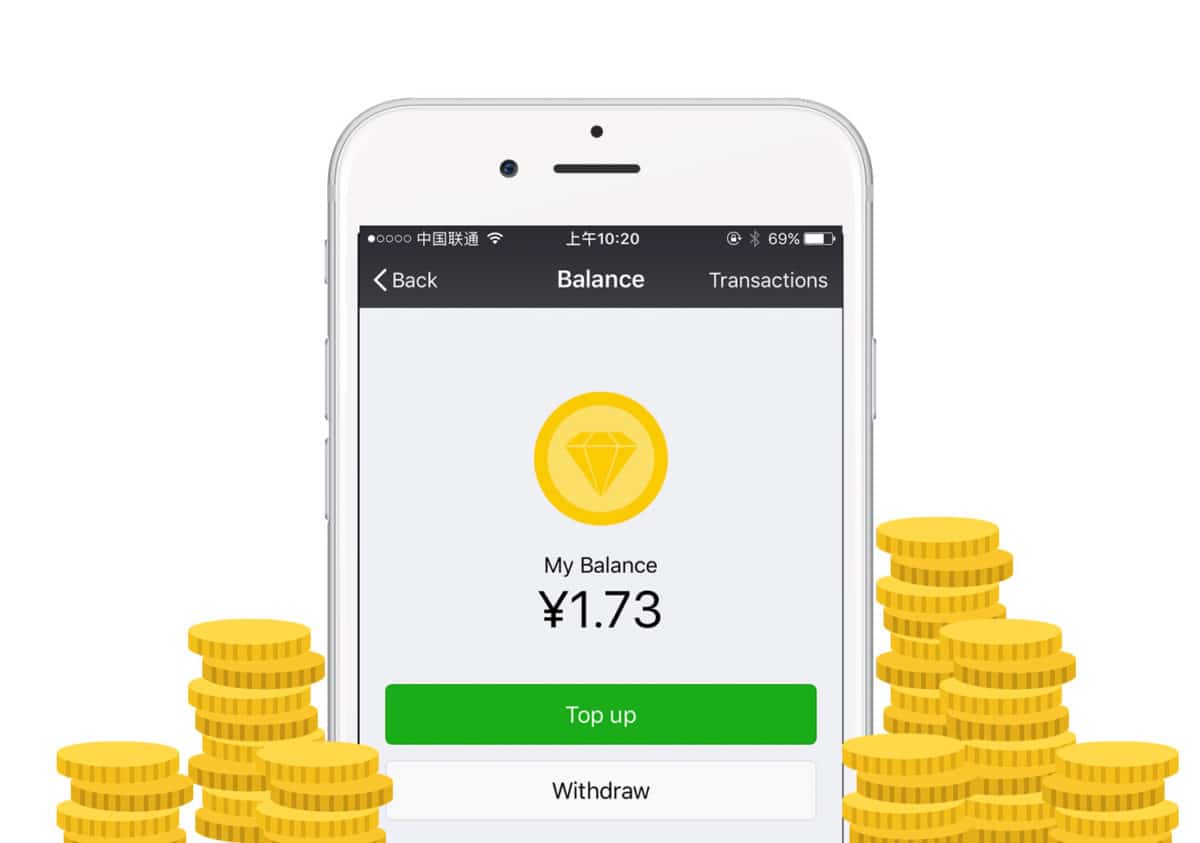You can now make a profit with your WeChat Wallet
Last week, WeChat Pay started testing a new feature called Lingqiantong (零钱通), a flexible money-market mutual fund. There is no minimal investment amount, and users can spend their deposit at any time without fees.
To give you a better idea of the yield, I made 17.64 yuan in August with 5,000 yuan principal (through the same mutual fund operate by Tencent). Not bad for a low risk money-market fund!
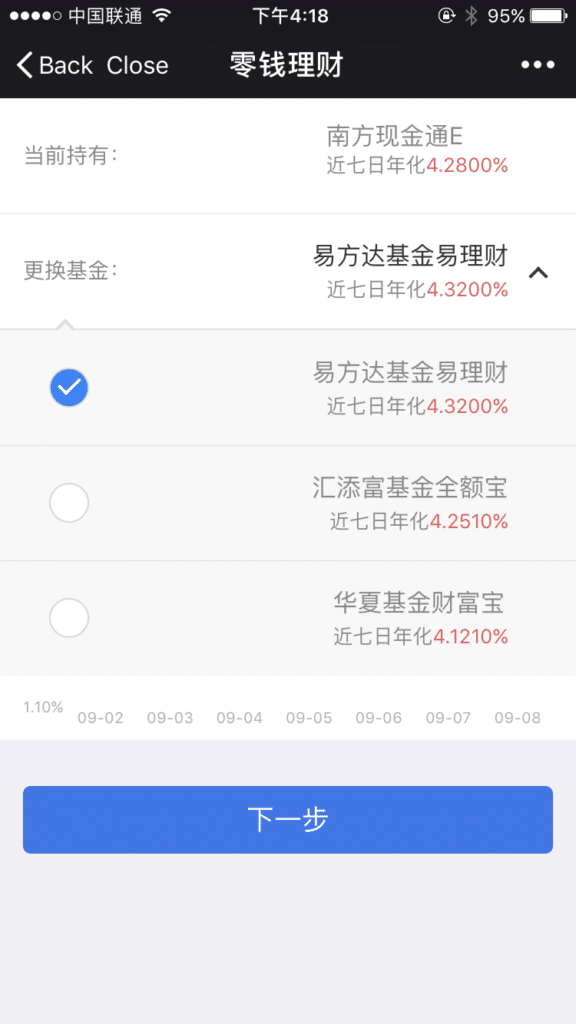
For now, the WeChat wallet mutual fund annualized seven-day yield is between 4.12% to 4.32%. They are slightly higher than Alibaba’s competing product Yu’e Bao’s 4.03% yield. This could incentivize some users to switch to WeChat Wallet for their low risk investments.
Such mutual fund is nothing new to the Chinese consumers.
Back in 2013, Ant Financial, the payment arm of Alibaba, already launched similar product called Yu’e Bao (余额宝). By May 2017, Yu’e Bao had already reached $165billion in deposits, surpassing JPMorgan Chase’s U.S. government market fund ($150 billion) to become the world’s largest money market fund. Ant Financial already has 520 million payment customers in China, and 112 million overseas (mainly in Asia).
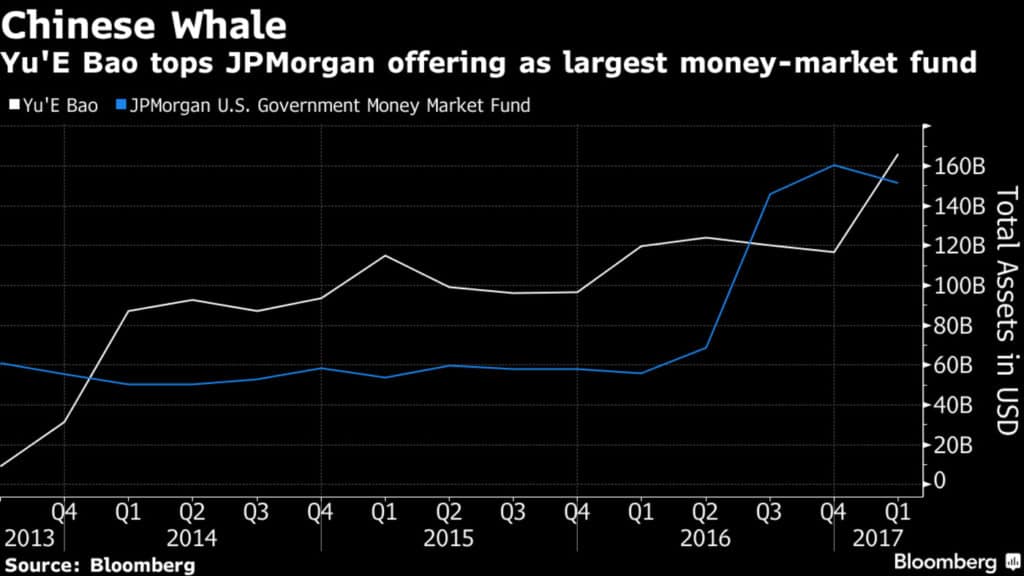
Yu’e Bao is mostly being used for small investment amounts: more than 70% of Yu’e Bao accounts have a balance of less than 1,000 RMB ($145), and 15% store between 1k – 10k RMB ($1,450).
Launching the WeChat version of Yu’e Bao is a reasonable move for Tencent. It encourages users to keep their money in WeChat Wallet, thus ultimately increasing spending on WeChat.
Lingqiantong is only available to Chinese citizens.
New access method for WeChat Mini Programs
WeChat just add a new access method for its new “favorite child”: WeChat Mini Programs. Users can now view the most recently-used Mini Programs right under their search bar.
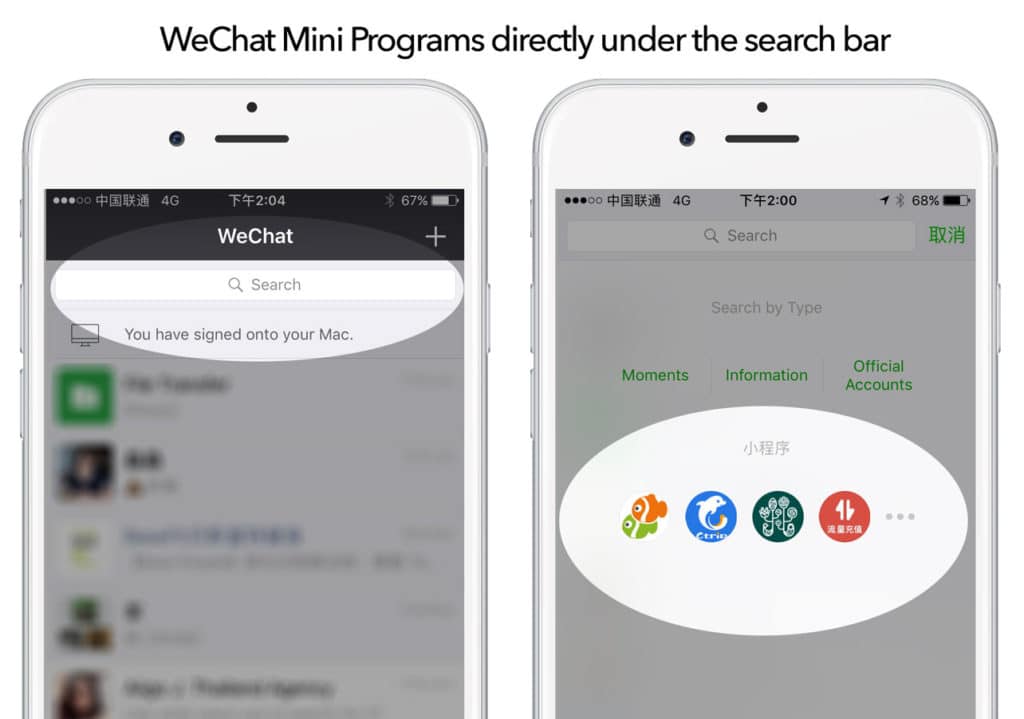
This feature is very reminiscent of a similar feature which appeared on iPhones with iOS8. Another proof that WeChat is getting closer and closer to becoming an Operating System within the Operating System.
Alibaba celebrates its 18th birthday, its transaction value is comparable with the GDP of Argentina, and it’s building a huge mall
On Sep 8th, Jack Ma dressed in Michael Jackson costume to celebrate Alibaba’s 18th birthday with his 40,000 employees.

Alibaba, with 392.70B market cap, is now the 6th largest tech company in the world, right behind Apple, Google, Facebook, Microsoft and Amazon. According to Jack Ma’s speech, if we treat Alibaba as a country, the current GMV (gross merchant value) sold on Alibaba equals to the No. 21st largest economy in the world, similar to Argentina’s GDP (545,124 million US$ by 2016 according to International Monetary Fund).

Here is a list of Apps owned by or having received investment from Alibaba.

photo credit: huxiu.com
Based on the company’s 5-years plan, here are Alibaba’s 4 goals:
- Optimize the integration between offline distribution channels and its online marketplace. Alibaba is planning to open a 40,000 square-meter mall, named “More Mall” near its headquarter in Hangzhou, by April 2018
- Use AI to improve day-to-day living efficiency. This includes launching Smart City projects (connecting water, heat, and electricity bills with Alipay system); provide better financial services via its affiliate company Ant Financial; and better use AI in its e-commerce ecosystem
- Revolutionize China’s manufacturing industry. The goal is to achieve a C2B “consumer to business” business model: a model where products would be custom-made for each client, based on each customer’s specific requirements.
- Globalization. Alibaba is closely collaborating with international political leaders to push its platform to the global market. Earlier in 2017, the focus was to gain market share in SE Asia
Mini Program launched LBS ads
Another big update for WeChat Mini Program is the launch of LBS (location-based service) ads.
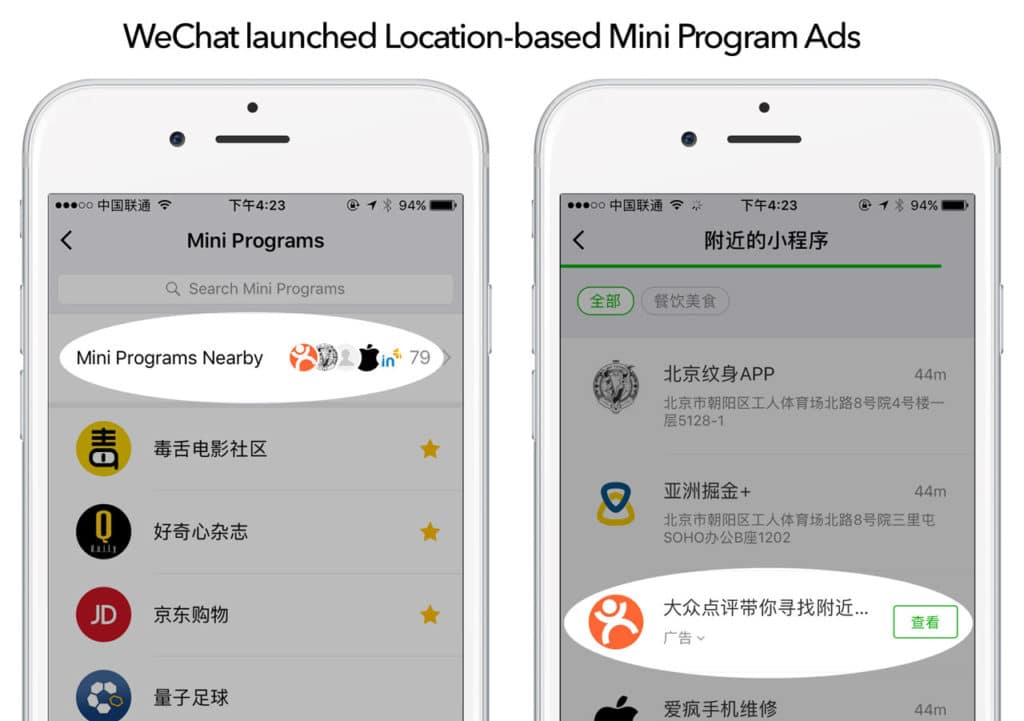
The ads appear on the 3rd position under the Mini Program Nearby tab.
It is however unclear how many people are actually using the “Nearby” feature with mini-programs. As of today, WeChat Mini Programs are not very convenient to archive and find. The main practical use case of mini-programs is for offline applications. For example, paying for a parking ticket, checking for the bus schedule, getting a status update when waiting in line in a restaurant…
Weibo starts to force users to verify their real name before making a post
Starting on September 15th, Weibo will start to force all users to verify their real name via phone number verification. Users failing to do so will be unable to post on Weibo. This is an action taken to follow the Beijing Blog Management Policy, mainly to control “false rumors” on the Internet.
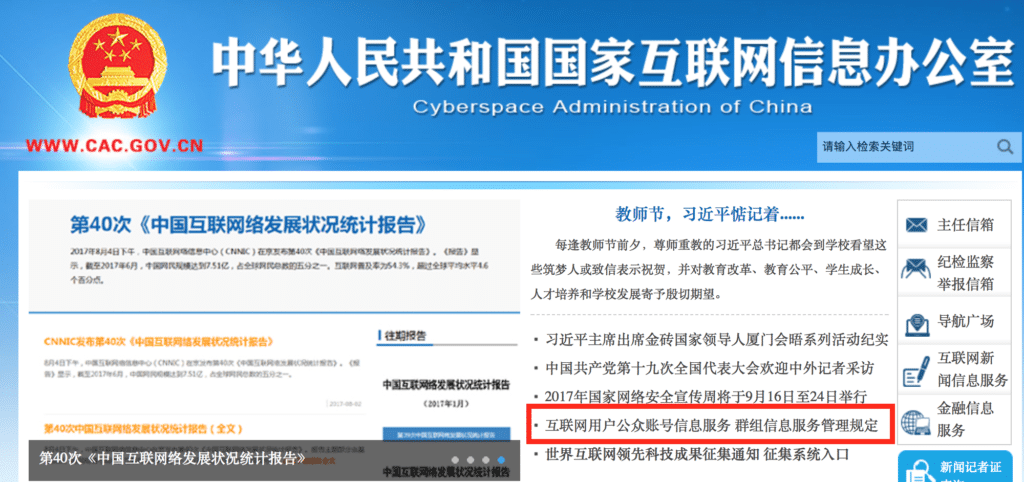
Also starting on October 1st, all news, live streaming sites, Apps, forums and all internet media will have to verify all registered user’s photo ID information. Users who failed to perform the verification will not be able to comment on the Internet.

